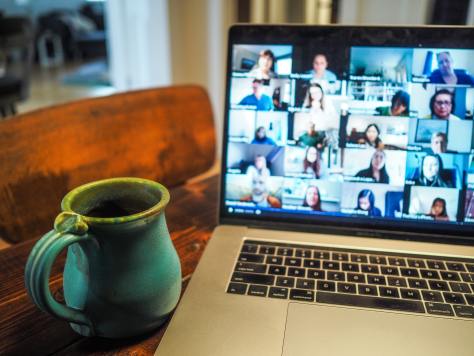
During the pandemic there was a widespread culture of “cameras off” by students. As part of research we did, in interviews, this was commented on by both staff and students. Staff felt that often they were talking to a blank screen as all the students had their cameras off and unlike in an in-person session they couldn’t see and read the students’ reaction to their lecture.
This is perhaps most starkly and consistently illustrated by the delivery of lectures through video and the use of cameras by students. Lecturers have generally, with a few exceptions, been praised for their delivery. However, while most students clearly have access to the required equipment they have been very reluctant to use their own cameras. The result has been that lecturers have often been left with little visual feedback of the type available in a lecture theatre, indeed they even wonder if the audience is engaging at all.
“I like to have my camera on when it’s just me and the lecturer with the camera on. And no one else,…”
Staff were often unaware why the students were reluctant to turn their cameras on.
“They’ve been very, very reluctant to have cameras on. I don’t know why that is.”
It certainly had an impact and some staff attempted to rectify and change the culture.
“I’m sat here, lecturing away for two hours to a blank screen, which is disconcerting. And if you read through the literature out there, lots of academics have started to say, “look, guys, I’m actually quite lonely. Can you please be cameras on?” That seems to work.”
The reasons for this reticence from students was explored during the interview process. It is clear that for many students there is a fear of being judged by their peers. In a traditional lecture theatre attention is focused upon the lecturer while in a virtual lecture it is easy to browse across the audience. In some cases, of course, it may be that students have logged in to give the appearance of attendance but not continued to view the lecture or that they may be viewing while in bed!
In some cases students wanted to turn on their camera but felt that the precedent had been set at the start of the course, not to use a camera and it would now be difficult to go against the “no camera” culture.

One potential solution is to think about setting ground rules. In order to inhibit this “no camera” culture lecturers could make it clear that use of a camera was expected from the start of the course. This needs to happen before the course starts. This will allow students to reflect on where they might attend the online session and ensure they are prepared to be in front of the camera.
The university may also want to consider ensuring space is available on campus for students to participation in online sessions.
It should also be planned on which sessions cameras are required, encouraged, optional, or not needed. Cameras should only be on when it adds to the session. Lecturers should consider why they are asking for cameras on for that session and what is adds to the learning experience.
Where lectures don’t require interaction from students, lecturers may want to consider is it necessary to deliver the session live, and a pre-recorded session may be an option.






























